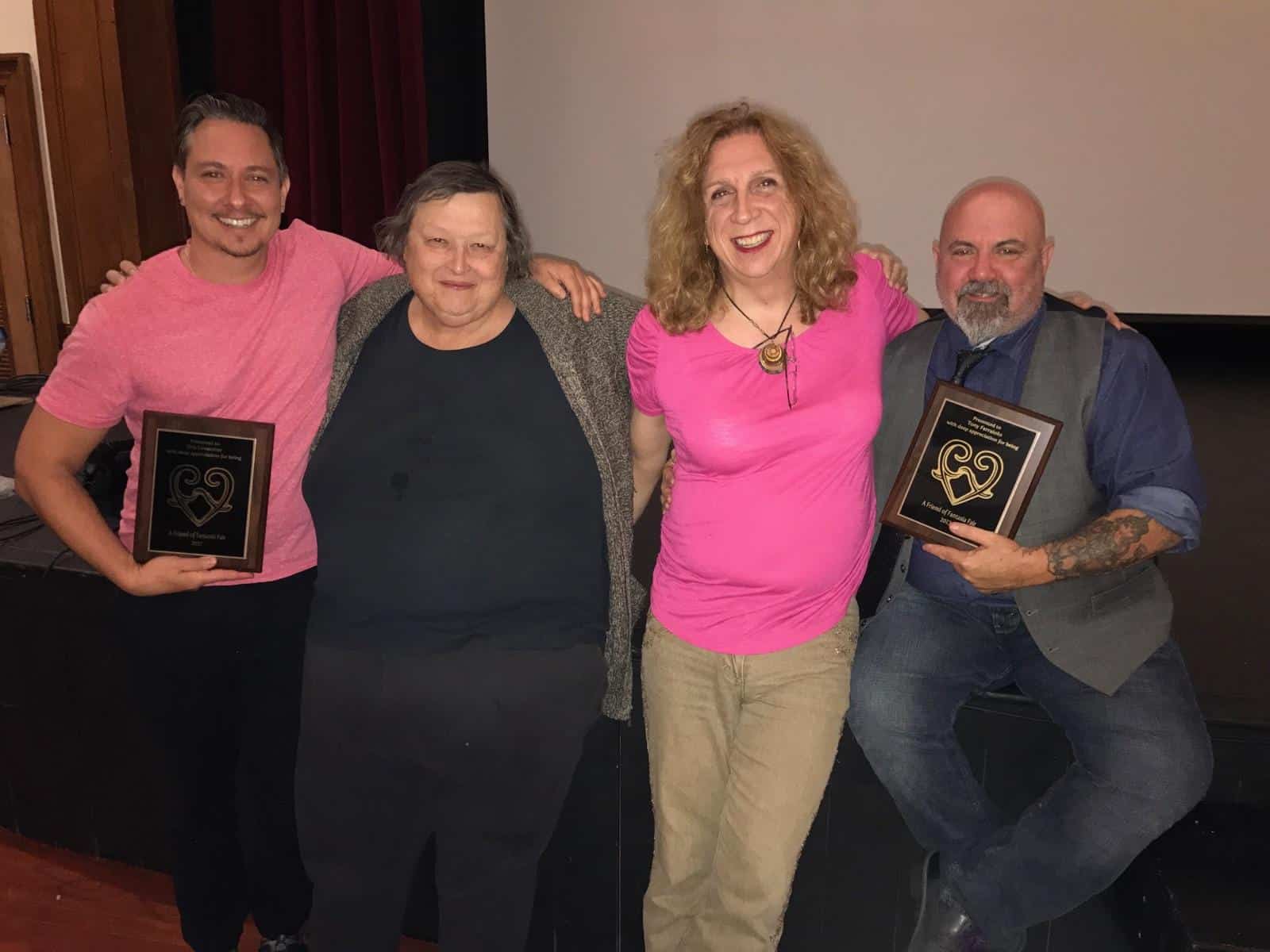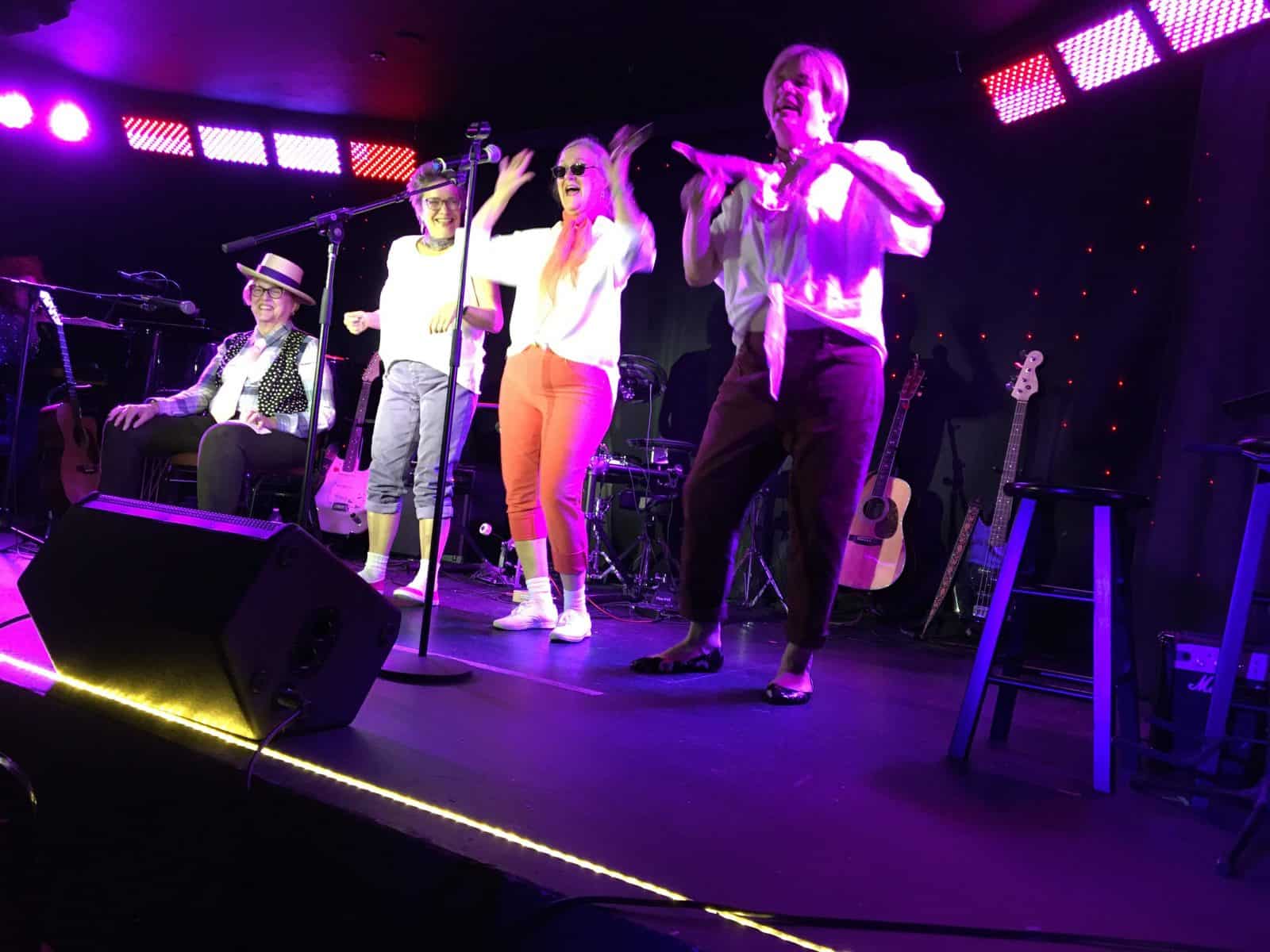by Jaiden van Bork
Fashion shows, workshops, keynote speeches – Since 1975, swaths of people have descended on Provincetown, Massachusetts, each fall to explore gender from the safety of remote Cape Cod at a gathering known as Fantasia Fair, an annual conference for gender-expansive individuals and couples. The event was founded in the seventies by members of a Boston-based transgender support group, seeking to address the “tremendous need for crossdressers and transsexuals to learn about themselves in an open, socially tolerant environment,” and includes talks and activities on a wide range of subjects relating to gender identity and expression.

Historically, the event has largely been associated with heterosexual, white, middle-class, femme crossdressers, but according to Executive Director Dee LaValle, who took office in 2018, times are changing. “Fantasia has always been a place where people can seek to find comfort, to be themselves,” she says. “And in order for us to maintain that, we had to evolve as a community.”
The reality is that the common understanding of gender has evolved significantly since the 1970s, when even the event’s program unironically referred to its participants as “men in dresses.” It was a point in time when modern notions of gender identity simply were not what they are today.
“A lot of us didn’t even realize that identifying as transgender was something that was available to us,” says LaValle, who first became involved in Fantasia Fair as a participant. And to the vast majority of the general public, any sort of gender-bending was seen as simply an obscure fetish. But as time went on, and more of the Fair’s attendees adopted new labels, LaValle says she found it hard to explain what exactly the event was. This didn’t help its historical difficulties in appealing to a younger crowd, who one might imagine still saw Fantasia Fair as being for a more old-school generation of trans people, and could hardly afford to attend to begin with. Plus, while the event had long catered to the transfeminine community, there was a growing need for recognition of transmasculine and non-binary individuals, as well. There was a dissonance between the rapidly evolving and diversifying transgender community and the world of Fantasia Fair, for which time seemed to stand still.
But in 2020, things began to change. The Fair was canceled that fall due to pandemic concerns, and Fantasia’s key operators had a chance to pause and think. “[COVID] gave us the opportunity to tap on the brakes,” LaValle says, “and look internally at this idea of meeting the needs of our attendee base.” And in 2022, attendees have witnessed one of the first major changes to occur: a rebranding of sorts to title the event “FanFair/TransWeek” or just “Transgender Week,” depending on where you look, finally centering the week’s official focus on transgender issues.
“Fantasia [implies] a fantasy,” explains LaValle, “And the majority of the people that come to our events are not living a fantasy – it’s reality.” For some cisgender people who enjoy playing with their presentation, gender expansiveness may be something to escape to, something to dabble with. But crossdressing and transgenderism are two different things, and for people that are transgender, their expressed gender is neither a choice nor a fantasy – it is an objective and unavoidable fact that they must reconcile with day after day. And in a political climate that is at best unpredictable for transgender people, it is important to center those who are most affected by policy decisions restricting access to both medical and legal interventions enabling people to live out their gender identity.
FanFair/TransWeek also now touts a substantial scholarship program, which LaValle says funds a large number of its applicants. The fund is supported by the attendee base itself, with fundraisers held during the program each year. While not 100% of applicants receive aid, LaValle says the success rate of the program is high and encourages a number of individuals and couples who could not otherwise afford it to attend the event.
Of course, the demographics of the conference still skew toward middle-class attendees over the age of 40. LaValle attributes this to the costliness of a trip to Provincetown itself – a reality that limits the accessibility of not just TransWeek but many other one-of-a-kind Provincetown experiences, as well.
It is clear that there is still work to be done to make FanFair/TransWeek truly open to all, but LaValle and the rest of the planning board are acutely aware of the need for change. “The needs today of being trans are different than they were before,” she says, “That’s the secret sauce – to be compelling year after year, you know?”
And going forward, LaValle sees lots of potential for even more change and progress. She talks of increasing volunteer participation and creating what she calls a “succession plan” for the countless volunteers who work tirelessly to put on the event each year. She also alludes to the idea that TransWeek could expand beyond the Fair itself and become more like some of the other theme weeks in town, with many different events and components hosted by a range of local businesses and venues.
Overall, it seems that there is great potential for the future of FanFair/TransWeek – and right now, that is critical. Across the country, state legislatures continue to roll back protections on transgender students and restrict access to gender-affirming healthcare, while at the same time countless transgender people (particularly trans women of color) continue to be murdered for simply living life as their true selves. We stand at a pivotal moment in transgender history, one at which so much has been accomplished, and yet so much is at risk of being taken away. And at a moment like this, it is crucial for transgender people across the globe to have spaces to learn from and celebrate one another, to be empowered by each other. We can only hope that going forward, the work of the folks at FanFair/TransWeek becomes an example for allies and activists everywhere.
FanFair/TransWeek 2022 runs October 16 – 23 at various venues in Provincetown. Most events require registration. For more information and to register, visit fanfair.info.

















